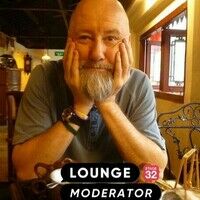Stephen Follows it would seem, can find trends and statistics from anywhere in the business. Today I found an article about dialogue.
He writes,
"Last week I was re-watching The Conversation (1974) with friends, and we all noted just how different the sound design felt to modern movies. The analogue tape machines stood out, but so did the footsteps, the music, the room tone, and above all, the sparse dialogue.
I finished the movie, wondering how atypical The Conversation was. And how all movies from the 1970s compare with modern ones in how they use dialogue."
Check out the trailer for The Conversation (Gene Hackman, Francis Ford Coppola), here:
https://youtu.be/elJL5D6HTvA?si=mjclFUQi_9O-gOrq
(It's a 70s style trailer, where they'd feel the need to tell a story about the film, but don't let that put you off).
Are your screenplays dialogue rich, or are you a believer in dialogical minimalism? Now, please don't go on about show-don't-tell, because film is about sound AND vision and we have to do both.
I've noticed that my early scripts had more dialogue in them. I've just check back on my script for Seeing Rachel and it is dialogue-rich, but that's only between pulses of action. And because of the subject-matter, a lot of that dialogue is framed by the power of suggestion, basically playing word-games with the associations rather than with a direct, candid dialogue.
Whatever I do this week, I think I'll have to watch 'The Conversation' again. How about you?
https://stephenfollows.com/p/has-the-way-movies-use-dialogue-changed





2 people like this
Here's another clip, plus on a discussion about Coppola making the film:
https://youtu.be/XP0YfePGErc
3 people like this
"The Final Solution" 113 pages, was written dialog rich, until my (possible) director told me he wanted to cut down the script to far under a 100 pages. Especially shorten/cut the 15 pages revolt at the end. Action scenes mean far more costs.
Also keep the WIDE SHOTS at a minimum. Not unlogical for an indrpendend movie ala "Son of Soul" or Persian Lessons" or "The Pianist" where the running time of the movies far surpass the amount of script pages; not even near a 1:1 ratiio.
But just shortening action lines, still giving the same info, does not mean you shortened the actual film's duration!!! This only works if you cut complete action lines/descriptions within a scene, or, better, cut whole scenes.
But, of course, cutting dialog always helps!!!
It seemes, for me cutting wide scenes means I start turning this script into a production script, which feels weird, because until now everybody told me not to think in camera angles, on pain of being shot!
Now the script is 97 pages, and I still can not be satisfied.
Aint life great!!
3 people like this
Rutger Oosterhoff haha! Yes life is great! There will always be someone somewhere who wants to shorten a script! In the early days of Seeing Rachel, it was all due to budgetary considerations, which was fine by me, as I wanted the film made!
1 person likes this
Such a great film. I haven't seen it in decades. I think I need to watch it again soon. Also, I tend to like films with less dialog and even minimal action, so my screenplays tend to be a bit heavy on the visual description side and a bit less on the dialog. If fact, some of my favorite film have such minimal dialog that sometimes there's nothing said for the first several minutes, which seems to break "the rules."
3 people like this
Sad how he passed Geoff Hall he was a legend!
2 people like this
Indeed Mark Deuce he had presence when he was on the screen. And that presence will be missed...
2 people like this
Totally agree with you Geoff Hall he was intense on and off the screen.